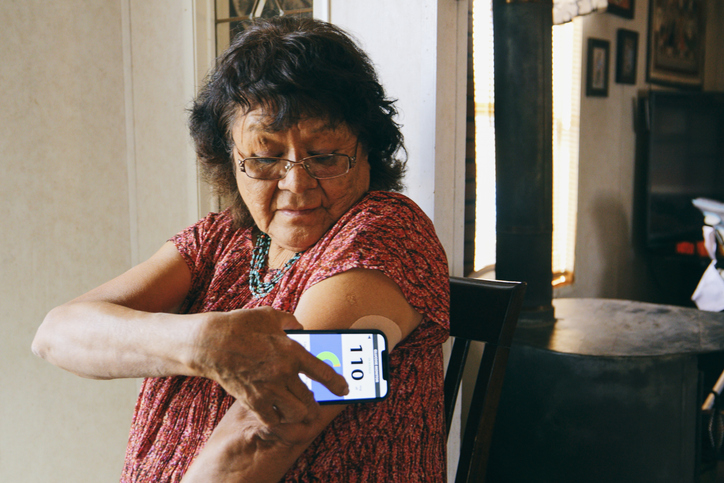Medicare Expands CGM Coverage for People with Type 2 Diabetes
By Susannah Chen
 On April 16, Medicare began covering people with type 2 diabetes for continuous glucose monitors (CGMs).
On April 16, Medicare began covering people with type 2 diabetes for continuous glucose monitors (CGMs).
In the largest expansion of continuous glucose monitoring coverage, Medicare expanded coverage of CGMs to include people with type 2 diabetes who are taking any type of insulin as well as members who are not on insulin but have a history of hypoglycemia.
The Centers for Medicare and Medicaid Services (CMS) rolled out the updated and expanded CGM coverage policy this week. It now includes insulin-treated individuals with diabetes who have traditional Medicare coverage (not Medicare Advantage), as well as certain non-insulin-using individuals who have a history of what has been classified as “problematic hypoglycemia.” This new policy is expected to impact an estimated 2 million people.
More specifically, the expanded coverage means millions more Medicare members will be eligible for Abbott’s FreeStyle Libre 2 system and FreeStyle Libre 14 day system, as well as Dexcom’s G6 system as well as the Dexcom G7 system, which recently became available in the US. Abbott is currently working to get the latest generation FreeStyle Libre 3 added to Medicare’s list of covered systems.
“There are millions of people with type 2 diabetes using basal insulin who now will be eligible for CGM coverage, either through Medicare or private insurers who are likely to follow the CMS determination,” said Dr. Roy Beck, medical director at the Jaeb Center for Health, adding, “A positive offshoot of this will be that primary care providers will become more experienced with CGM since most people with type 2 diabetes treated with basal without bolus insulin are followed in a primary care setting.”
“As CGM has become smaller and easier to use, I am thrilled that the access is expanding. The evidence is clearly there on the benefits of CGM in achieving target glucose levels and improving quality of life,” Dr. Diana Isaacs, clinical pharmacist and diabetes care and education specialist at the Cleveland Clinic, said, adding: "This is a major win for people with diabetes."
Traditional Medicare claims are processed through local entities called Medicare Administrative Contractors (MACs), private healthcare insurers permitted to process Medicare claims who decide coverage and payment policies for a range of services, and medical equipment, including CGMs. A group of MACS initially proposed a new policy to expand coverage to include CGMs last October.
The diaTribe Foundation, through the Time in Range Coalition (TIRC), submitted a comment letter to express support for the proposal. The comment letter highlighted the importance of the proposed coverage policy change because it would help expand access to care, advance equity, reduce disparities, and decrease health care costs.
The letter also thanked the MACs for recognizing the racial, income, and geographic disparities that exist within the diabetes community and in accessing CGMs.
In response, the MAC Directors expressed their thanks for the feedback and said they “are hopeful that the finalized … [policy] will help decrease health disparities in the diabetes community.”
A decision was expected later this year and the final determination was heralded by advocates across the country. Some equity research analysts have speculated that this decision increases access for approximately 1.5 million people with diabetes in America who currently use basal insulin treatment covered by Medicare.








